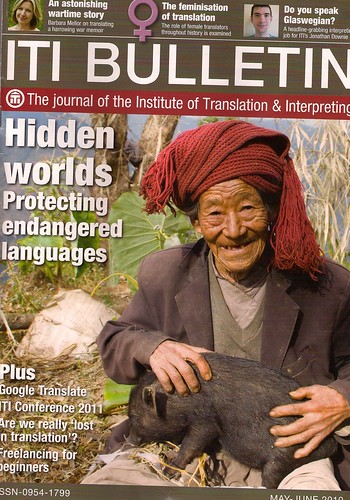 One of the best perks in my former role as a Director of eCPD, the online training provider for translators, was that I got to attend some truly fantastic talks by the most interesting, inspiring and successful people in our profession.
One of the best perks in my former role as a Director of eCPD, the online training provider for translators, was that I got to attend some truly fantastic talks by the most interesting, inspiring and successful people in our profession.
So I was buzzed when I heard Judy Jenner, blogger at Translation Times and co-author of The Entrepreneurial Linguist, emphasise that building and growing a business is hard, and that freelance translators and interpreters need to expect it to be that way.
Yet not many translators (and dare I say it, even fewer interpreters I meet) seem to grasp this.



